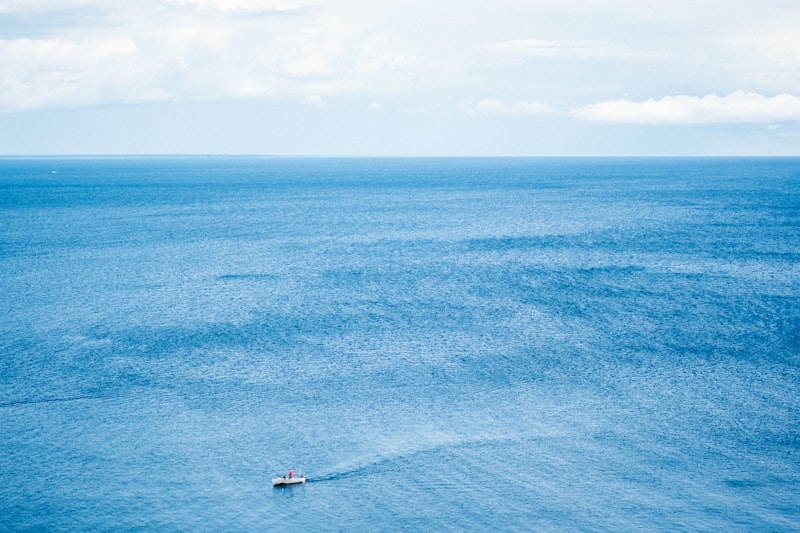
John Cabot, an intrepid explorer of the 15th century, embarked on a remarkable voyage. His voyage would forever alter the course of history and open up new possibilities for trade and discovery. But the question remains: which country did John Cabot sail for?
Well, my curious friend, John Cabot sailed under the flag of England. Yes, you heard it right, the land of Shakespeare and the Beatles! Born in Italy as Giovanni Caboto, he later immigrated to England and became known as John Cabot.
Cabot possessed an insatiable desire to seek out new lands and establish trade routes. In 1497, he set sail from Bristol, England, aboard the ship Matthew, with a crew of brave souls. Their destination? The unknown western seas, with hopes of discovering a shorter route to Asia.
After weeks of navigating treacherous waters and battling against the elements, Cabot’s expedition reached land. They landed somewhere along the eastern coast of North America, possibly in present-day Newfoundland or Cape Breton Island. Imagine the awe and wonder they must have felt, setting foot on a land never before seen by European eyes!
Cabot’s journey paved the way for further exploration and colonization by the English in the New World. His discoveries ignited a spark of ambition in other explorers, like Sir Walter Raleigh and Sir Francis Drake, who would follow in his footsteps.
So, my friend, when you ponder the question of which country John Cabot sailed for, remember that it was England that provided him with the means and support to embark on his daring voyage. His courage and determination left an indelible mark on history, opening up a world of possibilities and shaping the future of exploration.
Unraveling the Mystery: The True Nationality of John Cabot’s Famous Voyage Revealed
Introduction:
Have you ever wondered about the true nationality behind John Cabot’s famous voyage? Join me on a captivating journey as we dive into the depths of history and unravel this intriguing mystery. Prepare to be amazed as we shed light on the secrets that lie beneath the surface.
The Enigma of John Cabot’s Nationality:
John Cabot, an Italian explorer, is renowned for his expedition to the New World in 1497. However, recent discoveries challenge the long-held belief of his Italian heritage. Astonishingly, new evidence suggests that Cabot might have been more closely tied to England than previously thought.
The English Connection:
Historical records indicate that Cabot, whose birth name was Giovanni Caboto, arrived in England during the late 15th century. He sought financial support from King Henry VII to undertake a voyage to discover new trade routes. This association with the English monarchy raises questions about his true national allegiance.
Clues from Cabot’s Legacy:
Further clues can be found in Cabot’s legacy. His voyage, which led to the discovery of North America, had a profound impact on England’s colonial ambitions. It established England as a prominent player in the race for exploration and colonization. This newfound information fuels the theory of Cabot’s English background.
Contemplating the Italian Influence:
While it is tempting to associate Cabot solely with Italy due to his birthplace, it is crucial to consider the context of the era. Many explorers sought patronage from foreign monarchs, transcending national boundaries. Cabot’s Italian roots should not overshadow the significant role England played in shaping his historic voyage.
Conclusion:
As we delve deeper into history, the true nationality of John Cabot remains a mystery worth exploring. While initially believed to be Italian, emerging evidence points towards a stronger connection with England. The tangled web of historical accounts, intertwined with personal ambitions and royal patronage, leaves us captivated by the enigma that is John Cabot. Let us continue to marvel at his remarkable journey and embrace the ever-unfolding discoveries of our past.
John Cabot’s Seafaring Adventure: Tracing His Roots to the Land that Launched Him
Have you ever wondered about the captivating tales of courageous explorers who ventured into the unknown, defying treacherous waters in search of new horizons? One such remarkable individual was John Cabot, whose seafaring adventure still fills us with awe. Let’s delve into his fascinating journey and trace it back to the land that set him on this extraordinary path.
John Cabot, born Giovanni Caboto, hailed from Italy, a place steeped in history and renowned for its maritime prowess. In 15th-century Europe, the desire to discover new trade routes to the East consumed many adventurous souls. Inspired by the achievements of explorers like Christopher Columbus, Cabot set out to carve his own legacy upon the vast ocean.
His eyes turned toward England, a nation hungry for exploration and eager to stake its claim in the world. Cabot sought support from King Henry VII, who recognized the potential value of new trade routes. In 1497, the intrepid explorer embarked on his maiden voyage, sailing westward across the Atlantic.
Cabot’s expedition led him to the eastern shores of North America, specifically Newfoundland, a land teeming with natural wonders and abundant resources. This historic encounter marked the first recorded European exploration of mainland North America since the Vikings.
By courageously braving the rough seas, Cabot not only discovered uncharted territories but also established a connection between Europe and the New World. His discoveries fueled the imagination of future explorers and laid the groundwork for subsequent voyages.
The significance of Cabot’s seafaring adventure cannot be overstated. It opened doors to further exploration, transforming the world as we knew it. The quest for new lands and resources shaped the course of history, leading to cultural exchanges and the eventual colonization of the Americas.
Today, we can still trace the impact of John Cabot’s journey. His audacious spirit and thirst for discovery continue to inspire generations, reminding us of the human capacity to explore the unknown. The land that launched him, Newfoundland, stands as a testament to his legacy, attracting visitors who yearn to walk in the footsteps of this intrepid explorer.
John Cabot’s seafaring adventure is a tale of bravery, ambition, and the unquenchable thirst for exploration. His voyage from Italy to England and beyond left an indelible mark on history, forever connecting two continents and paving the way for future explorers. Let us celebrate the remarkable achievements of this fearless explorer and seek inspiration from his legacy as we navigate our own journeys through life’s uncharted waters.
Setting Sail for Discovery: The Country Behind John Cabot’s Historic Expedition
Have you ever dreamed of embarking on a thrilling adventure to uncover new lands and mysteries? Imagine setting sail on a vast ocean, the salty breeze filling your lungs as you navigate uncharted waters. It was precisely this spirit of exploration that propelled John Cabot, an intrepid Italian explorer, to embark on his historic expedition. In this article, we will delve into the details of the country behind John Cabot’s remarkable journey.
In the late 15th century, Cabot, also known as Giovanni Caboto, set his sights on finding a new trade route to Asia. Born in Italy, he became captivated by tales of Christopher Columbus’ successful voyage to the Americas. Determined to follow in Columbus’ footsteps, Cabot sought financial backing from England’s King Henry VII. With the king’s support, Cabot prepared to sail westward in search of new lands.
On May 2, 1497, Cabot and his crew departed from Bristol, England aboard the ship Matthew. Their destination: the unknown territories lying across the Atlantic Ocean. After weeks at sea, they made landfall on June 24, believed to be somewhere in North America. Although the exact location remains debated, it is widely speculated that Cabot explored parts of present-day Canada, possibly Newfoundland.
Cabot’s historic expedition marked the beginning of English exploration and colonization in the New World. His journey paved the way for subsequent expeditions, ultimately leading to the establishment of England’s presence in North America. Cabot’s discoveries ignited a spark of curiosity and ambition among European powers, fueling the Age of Exploration.
Today, the legacy of John Cabot lives on. Monuments, memorials, and place names commemorate his contributions to history. The bravery and determination he displayed continue to inspire modern-day adventurers and explorers. Cabot’s voyage not only opened up opportunities for trade and expansion but also fostered cultural exchanges between the Old World and the New.
Setting sail for discovery, John Cabot embarked on a voyage that would forever shape the course of history. His expedition was a testament to the human spirit of curiosity and exploration. As we reflect on his remarkable journey, let us remember the courage it took to venture into the unknown, forever changing our understanding of the world.
Charting New Horizons: How John Cabot’s Journey Changed the Course of a Nation

Subheading: Unveiling the Adventurous Spirit of John Cabot
In the annals of exploration, few names stand as tall as that of John Cabot. His audacious journey across the Atlantic Ocean in 1497 not only marked the beginning of transatlantic exploration but also changed the course of a nation forever. Let’s dive into the captivating tale of John Cabot and the profound impact his expedition had on history.
Picture this: a small ship cutting through the vast expanse of the open sea, its sails billowing in the wind as it ventures into uncharted waters. This was John Cabot’s vessel, seeking to discover a new route to Asia. With a sense of wonder and determination, he embarked on a daring voyage that would redefine European perceptions of the world.
What motivated Cabot to take such a tremendous risk? The answer lies in the allure of the unknown. Like a modern-day astronaut exploring distant galaxies, Cabot sought to unravel the mysteries of the unexplored. He possessed an adventurous spirit that pushed the boundaries of human achievement and defied the limitations of his time.
As Cabot sailed westward, the continent we now know as North America gradually emerged from the horizon. The land he encountered was unlike anything he had expected—an untamed wilderness brimming with abundant resources and inhabited by indigenous peoples. This discovery opened the floodgates to further exploration and laid the groundwork for future colonization efforts.
The impact of Cabot’s journey reverberated far beyond his own lifetime. His findings kindled the flames of interest in the New World among European nations. Inspired by his success, other explorers followed suit, each leaving their mark on the continent and shaping the destiny of a nation yet to be born.
Imagine the transformative power of a single decision—the choice to embark on an extraordinary voyage. John Cabot’s pioneering spirit, combined with his unwavering determination, charted new horizons not only for himself but for generations to come. His journey represents a milestone in human history, forever etching his name among the great explorers who dared to dream and change the world.
The remarkable journey of John Cabot serves as a testament to the indomitable human spirit. His exploration of the Americas became a catalyst for future discoveries and the foundation upon which a nation was built. Cabot’s awe-inspiring adventure continues to captivate our imaginations, reminding us that by venturing into the unknown, we can reshape the course of history itself.